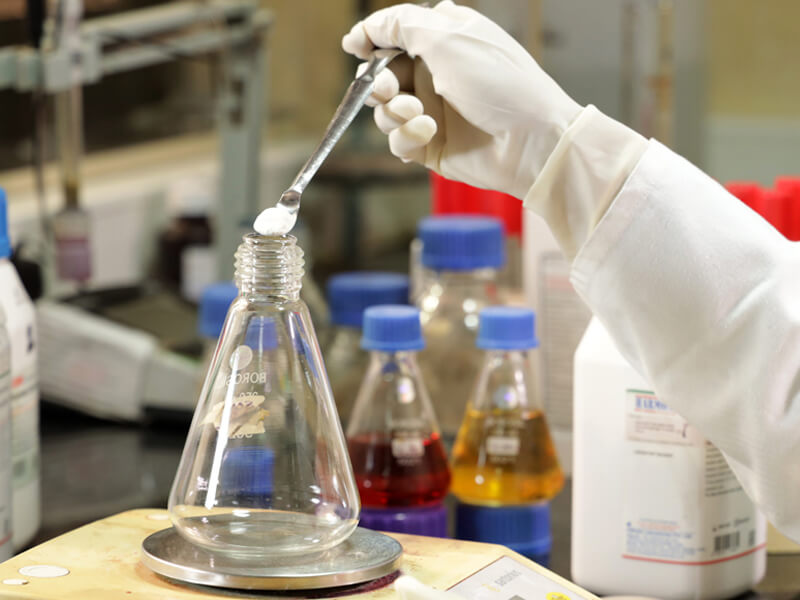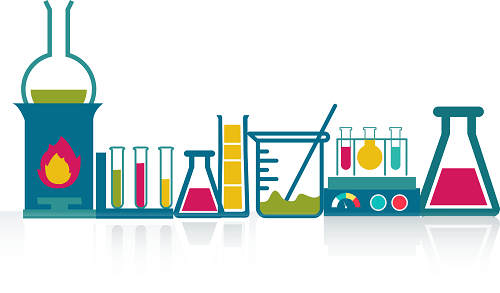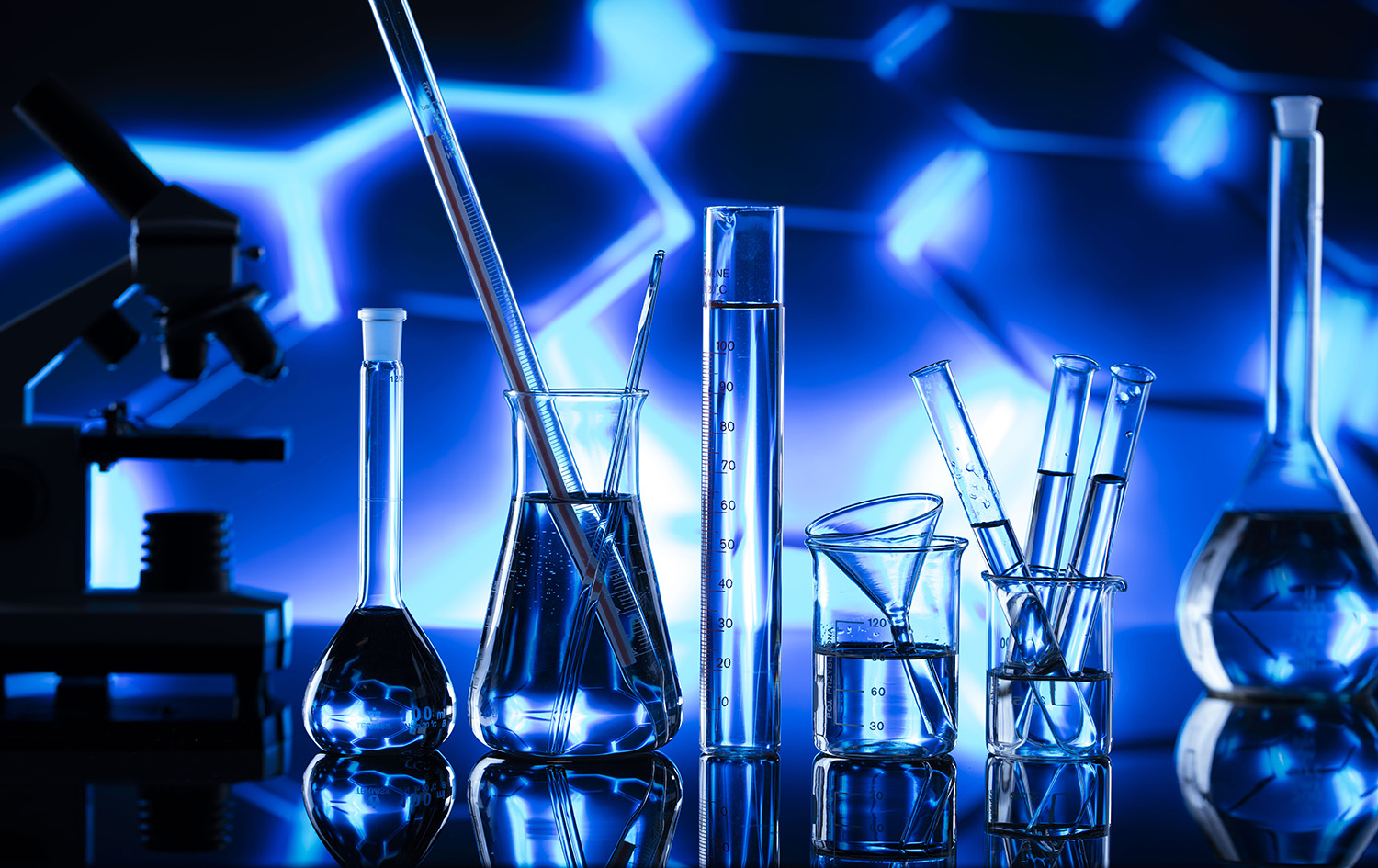

By the end of this course delegates will be able to:
• To impart participants fundamental techniques of analytical chemistry.
• To identify the application of analytical methods.
• To understand the instruments’ techniques.
• To know how to judge the accuracy and precision of experimental data and how these judgments can be sharpened by the application of statistical methods.
• To understand the tools and techniques used to achieve process analysis, qualitative methods, cause and effect diagrams and calibration graphs.
• To be familiar with the latest analytical methods.
The course is designed for chemists, lab technicians, chemical engineers, instrument engineers and lab supervisors/managers.
This interactive Training will be highly interactive, with opportunities to advance your opinions and ideas and will include:
• Lectures
• Workshop & Work Presentation
• Case Studies and Practical Exercise
• Videos and General Discussions
Module One:
• Introduction
• Historical and review
• Analytical Chemistry and Chemical Analysis
• Type of Chemical Analysis Methods
• Classical Methods
• Instrumental Methods
• Instrumental analysis in laboratory
• Basic Principle and theory of Instrumental Analysis
• Rules for operation laboratory instruments
• Spectroscopic Instrumental Analysis
• Molecular Spectroscopy analysis
• UV-Vis spectroscopy
• FTIR Spectroscopy
Module Two:
• Atomic Spectroscopy analysis
• X-ray analysis (XRF-XRD)
• Atomic Absorption Spectrometry (AAS)
• Atomic Emission Spectrometry (AES)
• Inductively Coupled Plasma (ICP)
• Separation Instrument Analysis
• Gas Chromatography
• High Performance Liquid Chromatography
• Ion Chromatography
• Electrochemical Instrument analysis
• pH meter
• Conductivity meter
• DO meter
• KF water analysis
Module Three:
• Computerized Systems, Good Automated Laboratory Practices
• Choosing the Right Instrument
• Comparing Instrumental Techniques
• Comparing Online Analyzers and Laboratory Instruments
• How to prepare tender for new instrument and consumable
• FAT Factory Acceptance Test & SAT Site Acceptance Test
• Chemical laboratory measurement evolution
• Reporting results
• Significant Figure Rules
• Laboratory Certification
• The Evaluation of Results and Methods
Module Four:
• Instrumentals Calibration, and Standardization
• History of Calibration Requirements
• Instruments Calibration and Traceability
• Standard Reference Materials
• Methodologies for a Calibration Program
• Standard calibration
• Internal Standard calibration
• External Standard calibration
• Correction of errors and improving blank
• Correlation Coefficient & Residual analysis in regression
• Quality / Calibration Manual
• Calibration work instructions, procedures, certificate, and documentation
• Calibration Reports, and Records Requirements
Module Five:
• Measurement Uncertainly in testing and calibration
• Type of errors in instrumental analysis
• Systematic, Random, and Gross errors
• Correction of errors and improving accuracy
• Precision Equipment Handling
• Maintenance and troubleshooting in instrumental analysis
• Routine & Preventive Maintenance
• Troubleshooting, Corrective and Preventive Action
• How to used LIMS in improvement laboratory instrument
• Establishing the traceability of measurements
• Measurement Uncertainly in testing and calibration
• Estimation of Measurement Uncertainty
• Standard Uncertainty
• Expanded Uncertainty
CDGA attendance certificate will be issued to all attendees completing a minimum of 75% of the total course duration
| Code | Date | Venue | Fees | Register |
|---|---|---|---|---|
| LAB126-02 | 10-05-2026 | Dubai | USD 5450 | |
| LAB126-03 | 24-08-2026 | Istanbul | USD 5950 | |
| LAB126-04 | 11-10-2026 | Amman | USD 5450 |
.jpg)
The good and advance analytical laboratory can motivate dispirited teams of chemists and technicians to accomplish high quality work. It is very important for laboratory staff to learn how to create t ...

advanced analytical chemistry helps working lab teams (chemists & technicians) to achieve the goals of the management and customer needs. also motivate them to accomplish high quality work. It is very ...

Determining the chemical composition of water can give operators an indication of the tendency of the water to generate scale or cause corrosion. Proper treatment of the water based on the chemical an ...
Providing services with a high quality that are satisfying the requirements
Appling the specifications and legalizations to ensure the quality of service.
Best utilization of resources for continually improving the business activities.
CDGA keen to selects highly technical instructors based on professional field experience
Since CDGA was established, it considered a training partner for world class oil & gas institution
3012, Block 3, 30 Euro Business Park, Little Island, Co. Cork, T45 V220, Ireland
Mon to Fri 09:00 AM to 06:00 PM
Contact Us anytime!
Request Info